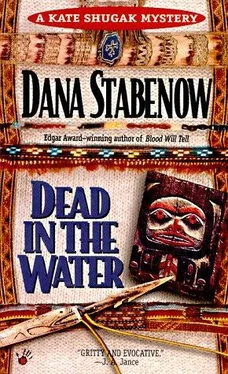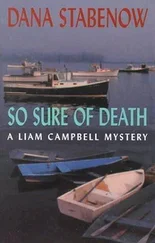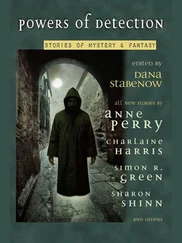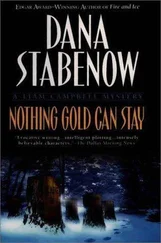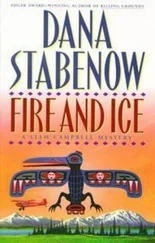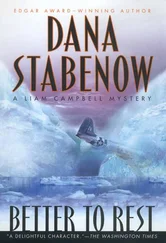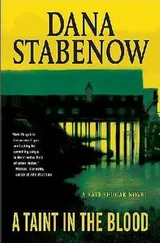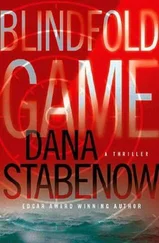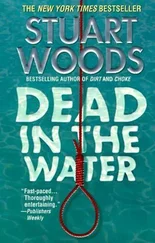Dana Stabenow - Dead in the Water
Здесь есть возможность читать онлайн «Dana Stabenow - Dead in the Water» весь текст электронной книги совершенно бесплатно (целиком полную версию без сокращений). В некоторых случаях можно слушать аудио, скачать через торрент в формате fb2 и присутствует краткое содержание. Жанр: Детектив, на английском языке. Описание произведения, (предисловие) а так же отзывы посетителей доступны на портале библиотеки ЛибКат.
- Название:Dead in the Water
- Автор:
- Жанр:
- Год:неизвестен
- ISBN:нет данных
- Рейтинг книги:4 / 5. Голосов: 1
-
Избранное:Добавить в избранное
- Отзывы:
-
Ваша оценка:
- 80
- 1
- 2
- 3
- 4
- 5
Dead in the Water: краткое содержание, описание и аннотация
Предлагаем к чтению аннотацию, описание, краткое содержание или предисловие (зависит от того, что написал сам автор книги «Dead in the Water»). Если вы не нашли необходимую информацию о книге — напишите в комментариях, мы постараемся отыскать её.
Dead in the Water — читать онлайн бесплатно полную книгу (весь текст) целиком
Ниже представлен текст книги, разбитый по страницам. Система сохранения места последней прочитанной страницы, позволяет с удобством читать онлайн бесплатно книгу «Dead in the Water», без необходимости каждый раз заново искать на чём Вы остановились. Поставьте закладку, и сможете в любой момент перейти на страницу, на которой закончили чтение.
Интервал:
Закладка:
" she said softly. She looked up at Olga. "Captain Cook wrote that in his log, when he visited Unalaska in 1778."
Becky sniffed, disdain sitting oddly on her young face.
"The Unalaska baskets were very coarse."
"So I've read," Kate agreed. "The ones on Attu were supposed to be the best, weren't they?"
This time Olga sniffed, and being older and more experienced carried it off better than Becky had. It was a sound of profound disdain. "If you say so."
"I don't know anything about it really," Kate admitted, "except for what I've read about it. And I've seen the baskets in the museum in Anchorage, of course. How long does it take you to make one of these?"
"Six months," Olga said. "Maybe six years."
Kate looked at her incredulously. "It's true," Olga insisted. "It depends on how big the basket is. A basket two and a half inches high takes about forty hours. But when the old ones made shrouds, it could take years to finish just one. Would you like to try?"
"Making a shroud?"
Olga laughed. "We'll start you on a basket."
There was a shuffling around the table as each girl found her own basket. Half a dozen dark heads bent forward, identical intent expressions on each small face.
Evidently this was serious business, and Kate said as much.
"One of these little baskets can bring as much as two hundred and fifty," Olga told her.
"Dollars?"
"Dollars," Olga confirmed with a twinkle in her eye.
Kate looked at the baskets the girls were working on with a new and growing respect. "This how you girls make your spending money?" Six heads nodded without looking up, six pairs of fingers worked steadily without missing a beat. Kate turned back to Olga and found a handful of the bleached grass under her nose.
"Peel the outer layers off, like this. You see?"
"Uh-huh," Kate lied. She got the definite feeling that Olga explained things one time and one time only.
"There are inner blades, here, and outer blades, what we call seconds. Keep them separate."
One blade of grass looked pretty much like another to Kate, but she sorted hers into what she prayed were the correct piles. "Okay."
"You split it, like this, with your thumbnail."
After nearly a month at sea on a crab boat. Kate didn't have much in the way of thumbnails and her first efforts were clumsy at best.
"All right," Olga said. "This is the spoke, and this is a weaver. The spokes are the frame, and the weavers are twisted around the frame. Okay. You take a piece of grass and twist it. Here, I'll start yours for you.
Remember, you work always from the bottom up, and clockwise."
"Who taught you how to do this, Auntie?"
"My grandmother, a little. The rest I taught myself by taking some old baskets apart."
"No one else does this anymore?"
"Very few. Many of the old weavers who were left died in the flu epidemic in 1919," Olga said, "and of course none of them told anyone else how they did their weaving."
"Why not?"
"Because every weaver had her own special weaving styles, and there was jealousy between the villages.
Each one always wanted to be the best, so each one kept her ways secret from the others." Olga sighed a little. "Now they are all dead, and the weaving is almost dead, too."
"Not as long as you're alive, Auntie," Becky said, and the girls giggled.
"For which you should be glad," Olga told them, "or you wouldn't be able to buy that new Michael Jackson album. No," Olga told Kate, "dabble your fingers in the water first. The grass must be damp to work. Not too much! Only wet down as much as you are going to use at one time. You have to wrap up what you don't use, and it will mildew if you put it away damp."
After straining and sweating an hour, Kate produced her first weave, a tiny circle of clumsy stitches that nevertheless was recognizable as the beginning of a basket. "Good," Olga said. "Now keep going."
Easy for you to say, Kate thought. "You've got a lot of grass here," she said, nodding at the pile on the kitchen floor. "Looks like enough to keep you weaving until next Christmas."
Olga shook her head and extended her arms in a circle, the tips of her fingers barely touching. "From this much grass, you get this many weavers." She put her right forefinger and thumb around her left wrist.
"That's all?"
"That's all," the old woman confirmed. "That's why it's important to pick the best grass."
"And where is the best grass?"
"Away from the salt water. Grass on the beach is too thick. It gets brittle after curing."
"So you pick in the hills?"
Olga nodded, her face bent over her basket, her expression absorbed as she conjured some especially intricate design out of the rim. "You learn where the good grass grows. If you keep picking in the same place the grass gets better."
"That's why we go back to Anua every year," Becky interpolated.
Kate broke a spoke. "Anua?"
Her voice must have sounded as startled as she felt because Becky cast her a curious glance. "Sure. It's where our family comes from."
"Oh." Kate began the arduous process of threading another spoke into the weaving, running through a mental list of questions to ask. She couldn't afford the appearance of prying or she would lose all the confidence she had gained so far. She recognized the investigator in her superseding the fellow tribal member and was momentarily ashamed of herself.
But two men were missing, and probably dead and she didn't like Harry Gault so she said in a casual voice, "So if you're from Anua, why do you live in Unalaska?"
"It was the war," Becky said. "Tell her the story, Auntie."
"It was the war," Olga said. Her voice dropped into a rhythm, slipping into it so effortlessly and so seamlessly that Kate didn't notice it at once. "The Japanese soldiers came.
"Then the army came.
"The army moved all of the people from the islands.
"They put them in towns and in camps in Cook Inlet and Prince William Sound.
"It was too hot up there for the people.
"Many of the people died.
"After the war, the army brought us back.
"The people that were left wished they had died with the others.
"The houses were gone.
"The villages were gone.
"Even the ones where there had been no Japanese.
"The army said they destroyed them because they couldn't leave the villages for the Japanese to use.
"We couldn't go back.
"There weren't enough of us.
"There was nothing to go back to.
"So now we live in a few villages instead of many.
"That's all."
The room was silent but for the rustle of grass. Kate kept her head bent over her basket. When she could speak, she said, "Do you ever go back to Anua?"
"Sure," Becky said, at the same time Olga said, "No."
The girl's eyes widened. Olga said easily, "Only for the grass. In June or July, when it is ready to pick. But mostly we use Chinaman's grass, raffia, that we buy from Outside. It takes too long to pick and cure the rye grass." The old woman smiled. "And the tourists can't tell the difference."
Kate grinned. Before she could reply, Sasha said suddenly,
"Home."
They all looked at her, seated on the floor, her crippled leg again twisted awkwardly beneath her. She still had the ivory knife, and with it she traced a pattern on the old linoleum floor, the yellowed ivory of the old knife looking odd against the cracked paisley pattern. Her brown eyes were bright and alert, the most alive features in that blunted face, "Kayak. Men. Thunderbird. Men.
Horne."
"That's the same story she was telling on the beach this morning," Becky told Olga. "What does it mean?"
Olga shrugged, and leaned forward to pluck the storyknife from Sasha's now limp fingers. "I don't know. What do any of Sasha's stories mean?"
Читать дальшеИнтервал:
Закладка:
Похожие книги на «Dead in the Water»
Представляем Вашему вниманию похожие книги на «Dead in the Water» списком для выбора. Мы отобрали схожую по названию и смыслу литературу в надежде предоставить читателям больше вариантов отыскать новые, интересные, ещё непрочитанные произведения.
Обсуждение, отзывы о книге «Dead in the Water» и просто собственные мнения читателей. Оставьте ваши комментарии, напишите, что Вы думаете о произведении, его смысле или главных героях. Укажите что конкретно понравилось, а что нет, и почему Вы так считаете.
